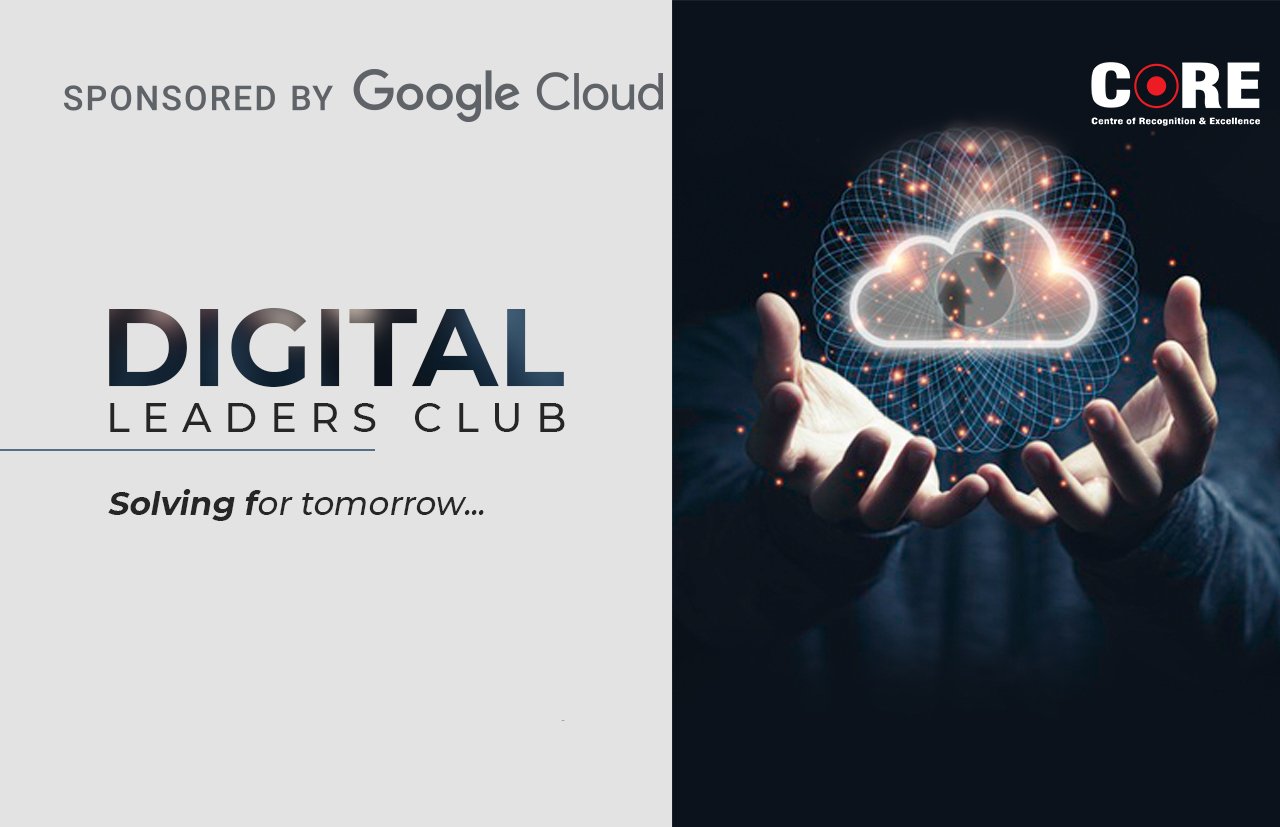The 6th edition of Digital Leaders Club, curated by CORE Media and sponsored by Google Cloud India, dwelled on the rise of the IT democratization era, where technology puts the power of data in the hands of business users and enables them to drive unprecedented business outcomes in a highly competitive market landscape.
Enterprises have been fast-tracking their digital transformation agendas at a rate of knots. But it’s not just the urgency that needs to be highlighted here. Transformation projects now come with new goals and renewed imperatives. Enterprises are now on a race to do more with less, optimize resources, stay resilient through unpredictable times and most importantly, stay agile.
Gone are the days of long-drawn-out technology implementations that would take months to see the light of the day. Business now wants immediate results and faster turnaround from IT. They want to leverage data and insights in real-time in a much bigger way, but without really having to worry about the tools that help them do it.
We are now at the dawn of a new era of IT democratization, where technology puts the power of data in the hands of business users and enables them to drive unprecedented business outcomes in a highly competitive market landscape. The 6th edition of Digital Leaders Club, a unique initiative from CORE Media and Google Cloud India to bring technology visionaries and leaders under one roof, aptly highlighted this trend during a one-hour long insightful discussion.
“The speed at which transformation initiatives are driven requires technology leaders to extend their scope of work beyond IT departments. We are now seeing more and more technology leaders being vocal about how they want to enable the business user with tools and skills that help them create services on the fly,” said Anoop Mathur, Founder & President, CORE Media, who moderated the discussion.
“2020 has been a transformative year for enterprises as they remodel their digital & IT modernization journeys, security strategies and workspace models in unprecedented ways. For technology leaders, it has been a period of breakthrough as they led these changes from the front. During this journey, data and technologies like AI/ML have become competitive strength rather than tech investments for every organization today. In the subsequent phase of re-innovation, CIOs will further extend the use of emerging technologies to define the future roadmap,” said Rahul Gupta, Regional Manager, Google Cloud India.
Extending Machine Learning Access
Technology leaders from different industries weighed in on how they are extending the use cases of AI/ML and harnessing the power of data in a much more consolidated way.
A CIO from the mining sector spoke in detail about how his organization is democratizing machine learning within the business, wherein business users with no data science skills are encouraged to ideate and build predictive models. “Building on our cloud-based data lake and leveraging some low/no-code tools, we are now extending the use of ML across business functions. The ability of business users to create predictive models can drive powerful business outcomes,” he added.
Another CIO from the services sector emphasized on building cognitive centric insights based on the unconventional data sets. The company has been successfully leveraging a large central data lake which pools in data from disparate sources to arrive at meaningful insights for its customers globally.
For another senior technology leader from the automobile sector, AI and machine learning has been instrumental in creative a compelling omni-channel experience, which has now become the new normal in the industry.
IT leaders also underscored how this shift in technology consumption models is also driving the need for reskilling and upskilling within the enterprises. As a result, cloud service providers like Google Cloud are now looking at new partnership models which allow the customer to co-innovate and co-built their technology infrastructure in collaboration with the CSP, rather than being more transactional in nature. Clearly, progressive firms are redefining their technology goals for a digital smart future.
Resources:


